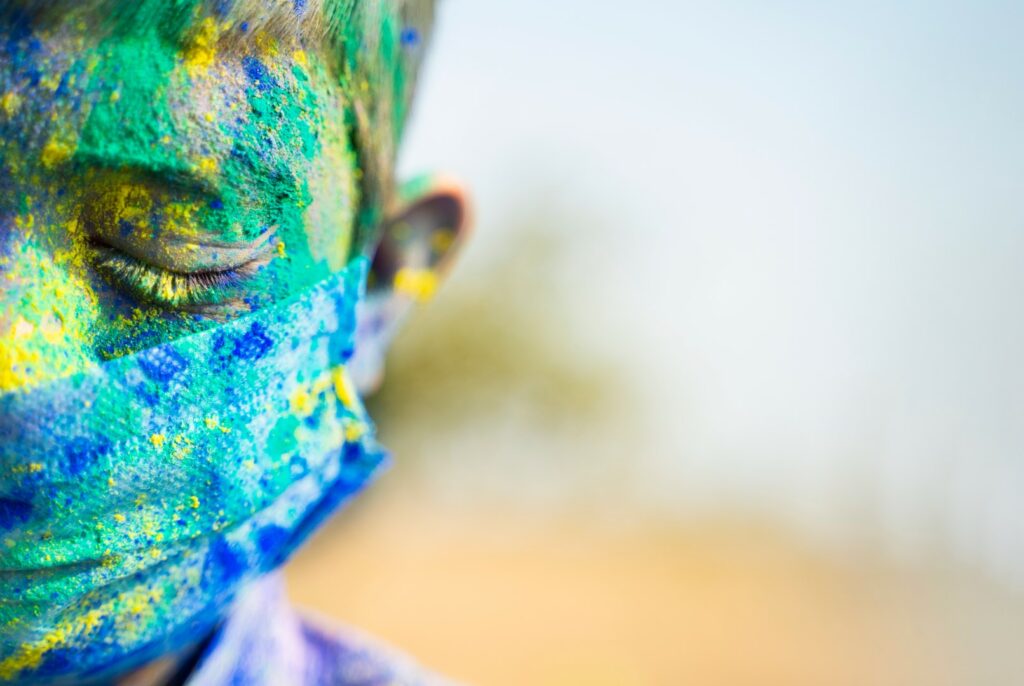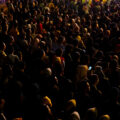What was the impact of COVID-19 on religious traditions in Europe?
What was the impact of COVID-19 on religious traditions in Europe?
Since the late 20th century, many European societies have become increasingly secular.[1] Nevertheless, religious traditions, such as festivals, rituals, and celebrations, have retained an important place in European life.
However, the emergence of the COVID-19 pandemic created a major challenge to these practices. Given that many religious traditions are based on groups of people coming together, the limitations regarding social distancing forced traditions to either be cancelled or transformed to match the new reality.
Using the EARS dashboard we can see how this process unfolded over the last three years, with summaries of news stories from more than 40 European countries helping us to think about the meaning of religious traditions in modern Europe and its future.
COVID-19 and traditions
When submitting articles to the EARS dashboard, our analysts add a series of tags relating to the topics covered in that article. This allows users to better filter their searches to find more relevant information.
For the purpose of this article, we can use the & function to search for articles that have been tagged with both the COVID-19 and traditions topics. In total, this gives us 1,367 different articles. This search also brings up articles covering nearly every country in Europe and also articles in a wide variety of original languages.


2020: Adapting to a locked-down Europe
The spread of COVID-19 in early 2020 forced almost all European countries to impose lockdowns, which for religions meant a fundamental change to their traditional forms of practice. On the one hand, the general tradition of daily or weekly communal prayers and services was suspended. But a more extensive social impact came with suspension of more widely-celebrated traditions such as Easter and Ramadan, taking place in April and May 2020.
This unwanted change to religious traditions resulted in one of the most striking images of the pandemic when Pope Francis gave his Easter sermon in front of an empty St Peter’s Square.[2] But as well as cancellations, the desire to mark traditions despite the lockdown also helped open up new opportunities for religions, in particular in terms of the use of online and digital communication.
Across Europe, Easter was celebrated by many from their homes. In Estonia, the Council of Churches organised digital streams of services and encouraged followers to celebrate online.[3] A similar system was set up in Ireland.[4] In Norway, NRK reported that many bishops and priests were pleased that the lockdown over Easter had forced the Church to “go digital,” something they hoped would have a long-term benefit for reaching a younger audience.[5]
Similarly, Muslims also turned to the internet to celebrate Ramadan. In Italy, Il Post reported that imams had transferred prayer sessions to online groups and families and friends met via digital means to break fast.[6] Muslims in the Netherlands also celebrated the iftar meal (breaking fast) via Zoom.[7]
The EARS dashboard therefore demonstrates that whilst the dramatic suspension of traditional celebrations was a shock, religious institutions and followers across Europe preferred to adapt to using digital means rather than simply giving up on their traditions entirely.
2021: traditions vs health?
A year on from the first lockdown, COVID-19 continued to cause havoc across Europe, with differing restrictions and levels of transmission across the continent. However, with the beginning of widespread vaccination and greater awareness about the virus, decisions about lockdowns and social distancing inevitably became about not just health, but also politics.

As shown in the graph, in April 14% of all articles submitted to the database included both the tags COVID-19 and traditions, with 10% in May.
These articles include various examples of political and religious authorities encouraging or requiring religious people to once again cancel their traditional practices. In North Macedonia, the prime minister explicitly called on followers of the Orthodox Church (who celebrated Easter on 2 May 2021) not to attend mass in person, so as to try and reduce the spread of coronavirus.[8] Meanwhile, in Malta, the Archdiocese took the decision not to hold services and instead continue to broadcast them online.[9] Muslims in Britain were also told by a senior imam not to “drop the ball” by allowing coronavirus to spread by ignoring COVID-19 limitations on celebrating Ramadan.[10]
In other countries, negotiations took place between religious groups and governments. For example in Greece, the Orthodox Church agreed a deal with the government to allow groups of a maximum of 25 people to celebrate Easter together.[11] Meanwhile, in Romania, following a meeting with religious representatives, the decision was made not to enforce any additional health limits with regards to Easter celebrations.[12]
For the year 2021, the dashboard helps to demonstrate that across Europe there were a variety of experiences and changes to religious traditions, ranging from the continuation of complete bans to a return to celebration with minimal restrictions despite the health risks.
Looking forward

As shown in the timeline graph, in 2022, summaries tagged with COVID-19 and traditions fell drastically as people across Europe were once again able to celebrate Easter and Ramadan without limitations. However, this study of the COVID-19 and traditions tags helps us to consider a couple of key points about religion in modern Europe.
Firstly, modern technology was essential in allowing people to continue the tradition of gathering together, albeit virtually instead of in person. Looking forward, it will be important to see if religious institutions and followers capitalise on this experience to continue using digital means of practising faith and reaching new audiences.
Secondly, the COVID-19 pandemic gave us insights into the political-religious power balances that exist in many countries, in particular during negotiations over celebrations in 2021. Again, looking to the future, using the dashboard to compare and contrast different policies in different nations helps us better understand how these power relationships vary across Europe.
And finally, it provokes an important question that readers and academics could consider. How did COVID-19 change the perception of religious traditions? Do Europeans now feel less attached to them, after two years of suspensions and uncertainties? Or is it in fact the case that these traditions are now more valued than ever after having been taken away?
All articles referenced in this study can be found in the EARS Dashboard.
Interested in similar topics? Go to our Dashboard and get free updates.
Sources
[1] The World’s Newest Major Religion: No Religion
[2] Pope Francis leads Good Friday service at empty St Peter’s Basilica
[3] Holy Week: Easter services to be broadcast on TV, radio and online | News | ERR
[4] Irish churches embrace technology during pandemic
[5] Trolig første gang på over 1000 år det ikke er vanlige påskegudstjenester
[6] Un Ramadan diverso – Il Post
[7] Ramadan tijdens corona: bidden via Zoom, eten in Hangouts – NRC
[8] Zaev calls on believers to refrain from visiting churches, send prayers from home – Republika English
[10] Covid: Imam’s plea not to “drop ball” over Eid celebrations – BBC News
[11] Κορωνοϊός: Με κόσμο οι Καθεδρικοί Ναοί στους Χαιρετισμούς – Τα σενάρια για τις Εκκλησίες το Πάσχα – Ορθοδοξία News Agency
[12] RO PM: No additional restrictions for Orthodox Easter | Romania Insider






